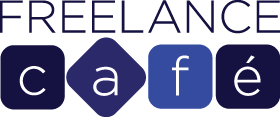This fellowship is open to journalists nationwide, though the event itself takes place in Los Angeles. Details below.
-mia
++++++++++++++++++++++++++
The California Endowment Health Journalism Fellowship
Application Deadline: May 02, 2011
How to Apply »
Who Can Apply:
This Fellowship is open to professional journalists from print, broadcast, and online media around the country, including freelancers. Applicants need not be fulltime health reporters, but they need to have a passion for health news (broadly defined). Applications from ethnic media journalists are strongly encouraged, as are applications proposing collaborative projects between mainstream and ethnic news outlets. Applicants must be based in the United States, and Fellowship projects must be published in or broadcast by bona fide journalistic outlets, not outlets whose operations are funded exclusively by a corporation, foundation, university, or advocacy organization. Journalism students are ineligible. Please contact us at CAHealth@usc.edu if you have questions about your eligibility.
Event Schedule:
July 24 – July 29, 2011. The National Health Journalism Fellowships offer journalists from around the country an opportunity to explore the intersection between community health, health policy and the nation's growing diversity. Reporting projects are supported with a $2,000 grant to each Fellowship recipient.
Program Description:
The National Health Journalism Fellowships are offered over a six-day period, beginning with an evening keynote address on Sunday night and ending with a midday wrap-up session the following Friday. Participants are expected to attend all sessions. To encourage journalists and their newsrooms to aim high in reporting on health at a time of scarce resources, we offer a $2,000 stipend to fellows in this track upon completion of what are expected to be ambitious, major fellowship projects. To stimulate collaboration between mainstream and ethnic media, we encourage applicants to propose a joint project for use by both media outlets. Up to two collaborators for each project may receive a stipend.
The California Endowment Health Journalism Fellowship
- John A. Rich, M.D., M.P.H, a MacArthur Genius Award winner and author of Wrong Place, Wrong Time: Trauma and Violence in the Lives of Young Black Men, spoke about youth violence, strategies to prevent it, strategies to report on it, as well as the impact of recurrent trauma and violence on the health of young black men.
- A visit to Homeboy Industries provided a closeup view of one program in action. Fellows heard from a panel of experts about different strategies for gang and violence prevention, including Olis Simmons, executive director of Project Youth Uprising, Father Stan Bosch, a priest and psychotherapist who provides group counseling to gang members, and Dr. Theodore Corbin, an emergency room physician and medical director of Healing Hurt People at Drexel University. Patrick Boyle, editor of Youth Today, moderated.
- A how-to talk by Suzanne Bohan and Sandy Kleffman, former Health Journalism Fellows and Bay Area News Group reporters who won a White House Correspondents’ Prize for their project, Shortened Lives: Where You Lives Matters.
- A conversation with Mary Lee, from PolicyLink, on “Health and Place.”
- A unique view of the Ports of Long Beach and Los Angeles, the nation’s busiest ports, on the Urban Ocean: World Port and Sealife Cruise hosted by the Aquarium of the Pacific. The tour provided a first-hand look at what happens when heavy industry and the natural environment share the same landscape.
- A briefing by key thinkers who have studied, regulated, managed and challenged the Port of Los Angeles as it launched historic air-quality improvements. In a discussion led by Journalist Deborah Schoch, Fellows learned about the economic and community health impacts of the goods movement industry (shipping and trucking).
- A briefing by two of the country’s top diabetes experts, Dr. Fran Kaufman and Dr. William Knowler, on diabetes research, including Kaufman's study of a school-based obesity prevention and reduction strategy and Knowler's research on exercise and nutrition-based interventions for adults at risk of diabetes.
- A look at novel technologies for participatory mapping (and community journalism) using mobile phones
- A case for the value of using maps to tell stories about inequity, with Ann Moss Joyner, head of the Cedar Grove Institute for Sustainable Communities.
